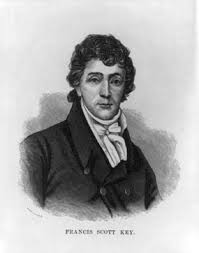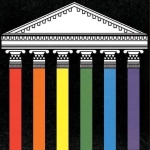I have seen this meme posted too many times on Facebook now to let it pass again without comment. This is the most arrant whiny bullshit I’ve seen in quite a while. Let’s take a closer look.
During the pandemic, most people in our country have suffered some significant adjustment to their income. They were laid off; they had to quit to take care of children who couldn’t go to school or daycare; they got sick and couldn’t work; family members got sick and they needed to take care of them; they took a pay cut so that the company wouldn’t go out of business and everyone could get some wages; their raises were deferred or simply vanished; their bonuses disappeared. Some people suffered devastating changes; some not as much.
You know what didn’t change at all during the pandemic? Social Security. Every month, right on time, we got our payments. Not only was there no negative impact on our Social Security, we actually ended up ahead. That’s right. On schedule in January 2021, we all got our cost-of-living increase. Kind of like a raise, you know. And in addition, we all got three pandemic relief checks to the tune of $3,200, simply for breathing. Didn’t matter whether we were working, full or part time, whether we were retired, whether we were senile or living in our home or in a nursing facility. All you had to do was be breathing (and not making too much money on your investments) and you got a free $3,200. Kind of like sitting on your butts and being paid for it.
And speaking of investments, even if some of your income came from investments, the Dow is now at almost 35,000. Before the pandemic, it was at 29,400 and change on February 10, 2020, and while it hit around 19,000 in the week of 3/16/20, it recovered all of its loss by November 9. So you can’t really bellyache about market losses, can you?
But more importantly, whether someone stays home and chooses to collect unemployment has absolutely nothing to do with you or with the size of your Social Security payments that you “worked hard all [your] lives” for. Absolutely nothing. It is none of your goddamn business.
Is there an argument to be made that Social Security payments should be more generous? I’m sure there is. I’d be happy to have my monthly check be bigger. But it has nothing to do with the pandemic or the unemployment system or the rescue checks or the supplemental unemployment payments. If you don’t like the size of your Social Security payments, go talk to your Congresscritters. They control that. Or maybe, stop voting for people for Congress who don’t give a flying fuck about you and your Social Security. That would be almost every Republican in the last 20 years. Remember President Bush who wanted to privatize Social Security which would have left you at the mercy of the markets? Remember the previous president who did nothing to even try to increase your payments? Go complain to them and their corporate paymasters on Wall Street.
And then there’s the rank intellectual dishonesty of tying your Social Security payments to a value judgment on people collecting unemployment. Plenty of us able-bodied people did sit on our butts and collect unemployment. I certainly did. Know why? Because as a professional musician, my entire annual income (except for Social Security) disappeared within two weeks in March 2020. I usually perform between 100-200 days in a year. So far in 2021, I’ve performed on 5. And with the Delta variant on the rise and masks being required again, I’m afraid the hoped-for recovery in the performing arts may end up delayed again.
Trust me. I received the princely sum of $445/week on unemployment. I can play one wedding and earn more than that and that’s what I’d much rather be doing. And if you think people are turning down good jobs for the sake of $445/week, you’re delusional. What they are doing is saying that they’re not going to spend 40 hours a week in a shitty job at $11/hour, a rate that won’t even come close to paying them a living wage and incur all the costs of working – clothing, lunches, transportation. That’s not lazy; that’s rational. That’s a rational economic decision.
And before you trot out that “that’s why people can’t find employees” nonsense, here’s a hot news flash. The states where the (Republican) governors have cancelled the supplemental federal unemployment payments? Their employment rates haven’t gone up at all. Because that wasn’t the main reason people were staying home. Some people still have child care responsibilities; some are still caring for elderly or sick family members; some are rethinking what they want to do with their lives; some have gone back to school. And over 600,000 have died. Granted, many of those were over 65, but that doesn’t mean a goodly number of them weren’t working.
P.S. To date, judges in four states have ruled the roll back of the federal supplemental unemployment payments by governors illegal and ordered them reinstated.
So if you want to post bullshit memes like this and piss and moan about the size of your Social Security, go right ahead. You could get off your butts and work on electing Congresscritters who will work for that on your behalf, but if you just want to complain and be judgmental, by all means, knock yourself out.
Just remember that it’s your children’s and your grandchildren’s lives plus those of millions of Americans you don’t know that have been rescued by the government’s supplemental payments and don’t be surprised if they’re not very interested in your skewed view of your right to stick your nose in their affairs. It’s none of your goddamn business.


 Let me tell you more about Francis Scott Key. Or rather, let me quote Shaun King who wrote a stunning column in 2016 about why he would never stand for the national anthem again and included this information about the lovely Mr. Key.
Let me tell you more about Francis Scott Key. Or rather, let me quote Shaun King who wrote a stunning column in 2016 about why he would never stand for the national anthem again and included this information about the lovely Mr. Key.








